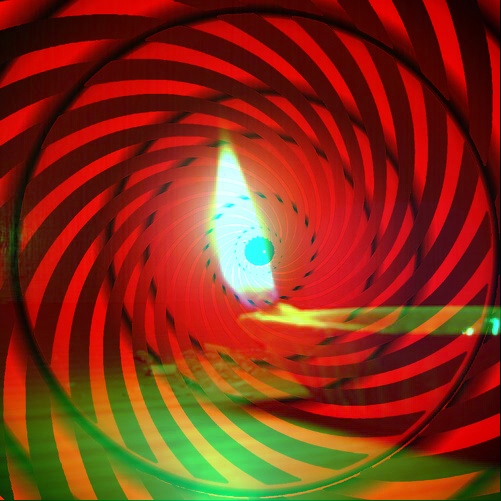Vedic History and the Myth of the Golden Age April 17, 2011
Author: Beach Combing | in : Actualite, Ancient, Prehistoric , trackbackEvery so often when Beachcombing writes a post, pastes a text in, finds an inane photograph and presses ‘publish’ there comes the click. It is a noise that means he has just stepped on a pressure bomb and that his next step is going to lead to dissolution: or, in blogging terms, thirty furious emails before breakfast. Certainly, today will be no exception but, as he has woken up at four am with the Vedic myth of the golden age running around and around in his head like a disco beat, he’s going to press ‘publish’ and, in the nicest possible way, be damned.
Conventional prehistory – to which conformist Beachcombing will lazily subscribe until something better comes along – claims that humanity evolved from the primates on an obscure timetable that saw the ‘aquatic monkey’ pushed out of Sub-Saharan Africa from where it colonised the world. C. 8000 BC (give or take a couple of millennium) humanity then took up farming and from there began the escape from the seasons, mankind’s expert and sometimes degrading manipulation of the environment.
Next step?
Alpha Centauri, of course.
However, before we make it to the stars, there are several alternative histories out there that need to be taken into account. Take, for instance, Vedic history, a system made famous/notorious by Michael Cremo, (co-)author of the cult books Forbidden Archaeology and Human Devolution: A Vedic Alternative to Darwin’s Theory.
MC and his allies reject evolution, claiming that humanity has been on the earth for millions if not billions of years. They reject any conventional evolution within society too. Rather there are millennia-long cycles that take humanity in and out of golden ages and dark ages where consciousness rises to extraordinary heights or falls into troughs before the wheel turns again.
Apparently the last trough was c. 500 AD: poor old Cassiodorus, no wonder his Latin was so bad.
Given that this Vedic system is such a radical departure from text-book prehistory there is necessarily something of the conspiracy theory about Vedic history. Mainstream archaeology, Vedics argue, refuses to accept anomalous data pointing to earlier human origins and hence masks knowledge.
Anyone who knows anything, meanwhile, about archaeologists can imagine what tenured professors have to say about Michael Cremo et alii: the fact that MC discovered the Bhagavad Gita at a Grateful Dead concert (really!) is often noted in unpleasant tones.
Beyond the tedium of personal attacks it is only right though for conventional sorts to ask for the material evidence for all these past advanced civilisations, which, allegedly, had mastered flight, computing, navigation and other marvels. Here, after all, it is not enough to point to difficult-to-date buildings or those one-volt batteries (another post another day) from Babylonia. Where is all the ephemera from the distant human past: Beachcombing has never found a satisfactory Vedic answer to this drbeachcombing AT yahoo DOT com? Certainly, we’ll leave behind a mother-lode of junk for our descendants to find in a thousand or, being unrealistically ambitious, a million years.
Then there are the Vedic golden ages and dark ages. So the following paragraph comes from an interesting Vedic or Vedic-style article by Walter Cruttenden that gave Beachcombing his sleepless night.
Giorgio de Santillana, former professor of the history of science at MIT, tells us that most ancient cultures believed consciousness and history were not linear but cyclical, rising and falling over long periods of time. In their landmark work, Hamlet’s Mill, de Santillana and coauthor Hertha von Dechend show that the myth and folklore of more than thirty ancient cultures spoke of a vast cycle of time encompassing alternating dark and golden ages moving with the precession of the equinox. Plato called this vast cycle the Great Year. Although the idea of a great cycle linked to the slow precession of the equinox was common to numerous cultures before the Christian era, most of us were taught that such a view is a fairytale, that there was no ‘golden age’. An increasing body of new astronomical and archaeological evidence, however, suggests that this cycle may have a basis in fact. More importantly, understanding the cycle provides insight into civilization’s direction at this time as well as the view that consciousness may be expanding at an exponential rate in the not-too-distant future.
Of course, just because a number of mythic systems claim something does not mean that ‘something’ really happened. Myths come out of human needs and if they mediate facts or past experience they do so because those facts match needs. Forget the vast cycles of the Vedics. Civilisations read their own recent past in terms of cycles of success and failure. Individuals do so as well: we are encouraged by the childhood, adulthood, second childhood of our dim existences. The belief in cycles and golden age and dark ages are hardwired. If one wants to be esoteric perhaps there are great cycles in the cosmos, but the chances are that these straddle the existence and fortunes of any given species. Seen in this light belief in the Vedic cycle is to civilisations what Beachcombing would say that belief in reincarnation is for the individual: a refusal to let go…



